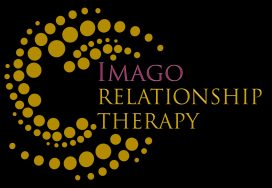 I have heard the term “self-centered fear” for many years in 12-step meetings along with stories about the harm that it causes couples in recovery. And now I’m noticing that “self-centered fear” not only causes great harm for those couples, but also for couples who are not in recovery. This is because we all get stuck in our thinking, which is usually motivated by fear.
I have heard the term “self-centered fear” for many years in 12-step meetings along with stories about the harm that it causes couples in recovery. And now I’m noticing that “self-centered fear” not only causes great harm for those couples, but also for couples who are not in recovery. This is because we all get stuck in our thinking, which is usually motivated by fear.The acronym for Fear in the program of Alcoholics Anonymous is F-False E-Evidence A-Appearing R-Real. The FEAR we experience is usually not real. I am not suggesting that we will stop experiencing fear, but that we can be free from a certain kind of fear, the fear that is a “corroding thread” running through relationships: “self-centered fear.”
Self-centered fear is a fear that revolves primarily around loss and failure: fear of losing what we have or fear of not being able to get what we want. This fear comes up in relationships because we “possess” and “demand.”
Fear becomes a self-centered and disabling emotion because we fall prey to it, anticipating loss and failure. It also creates a distortion of value and perception.
When we are absorbed by self-centered fear, we want what we want so badly that we are blinded to what we do to get or keep it, i.e., sex, job, wealth, status, power, relationships and a host of other things we hope will help us find value and meaning in life. The fear we feel is a function of the value and the perceived threat to it.
The higher the value and the stronger the perception, the greater the fear. So to get it or keep it we will cheat, lie, steal, manipulate and do harm. Then we fear the consequences and it becomes a vicious cycle. Fear drives us to do wrong, and doing wrong drives us to fear.
We ALL have fearful tendencies. We will NEVER be perfectly free of it. But we CAN learn to be honest with our partners early in our relationships about our fears and learn to stop indulging in our fearful destructive behaviors or attitudes.
Because many of us are afraid or ashamed to share our fears, we keep them hidden and then feed ourselves stories about the possible consequences about what we might share. In essence, we have the entire conversations with ourselves and then convince ourselves our partner will actually follow the script playing out in our head.
I’m thinking of a time when I convinced myself about a particular script I had playing in my head which said that, if I told my partner the truth about how afraid I was, she would not want me. So every time I was on the verge of being honest with her, I played out the conversation in my mind, which always ended in her being so hurt and angry that she couldn’t stand to be near me anymore.
So instead of telling the truth, I lied. I told her that I didn’t want to be with her anymore. This was the opposite of the truth. It allowed me to avoid risking rejection, from her, but in the end, I rejected myself. The conversation I was having with myself was a self-fulfilling prophesy. Because, at that time, I didn’t have the faith or trust that if I actually told her the truth, something new could emerge between us and I could come to know my own feelings in a different way.
The skills that helped me to really trust myself in relationships only grew when I actually was in a relationship being honest and direct in my interactions. The insight I’m sharing now isn’t what helped me to face my self-centered fear. I had to risk myself in relationships, time after time, if I ever hoped to trust.
Because when we truly risk and speak from our deepest truth, our partners understand us in a new way. And … we allow true intimacy to develop between us.
Loving Out Loud in Connection,
Paula M. Smith, M.Div., MFT
Certified Imago Therapist
Marriage Builder
401-782-7899





